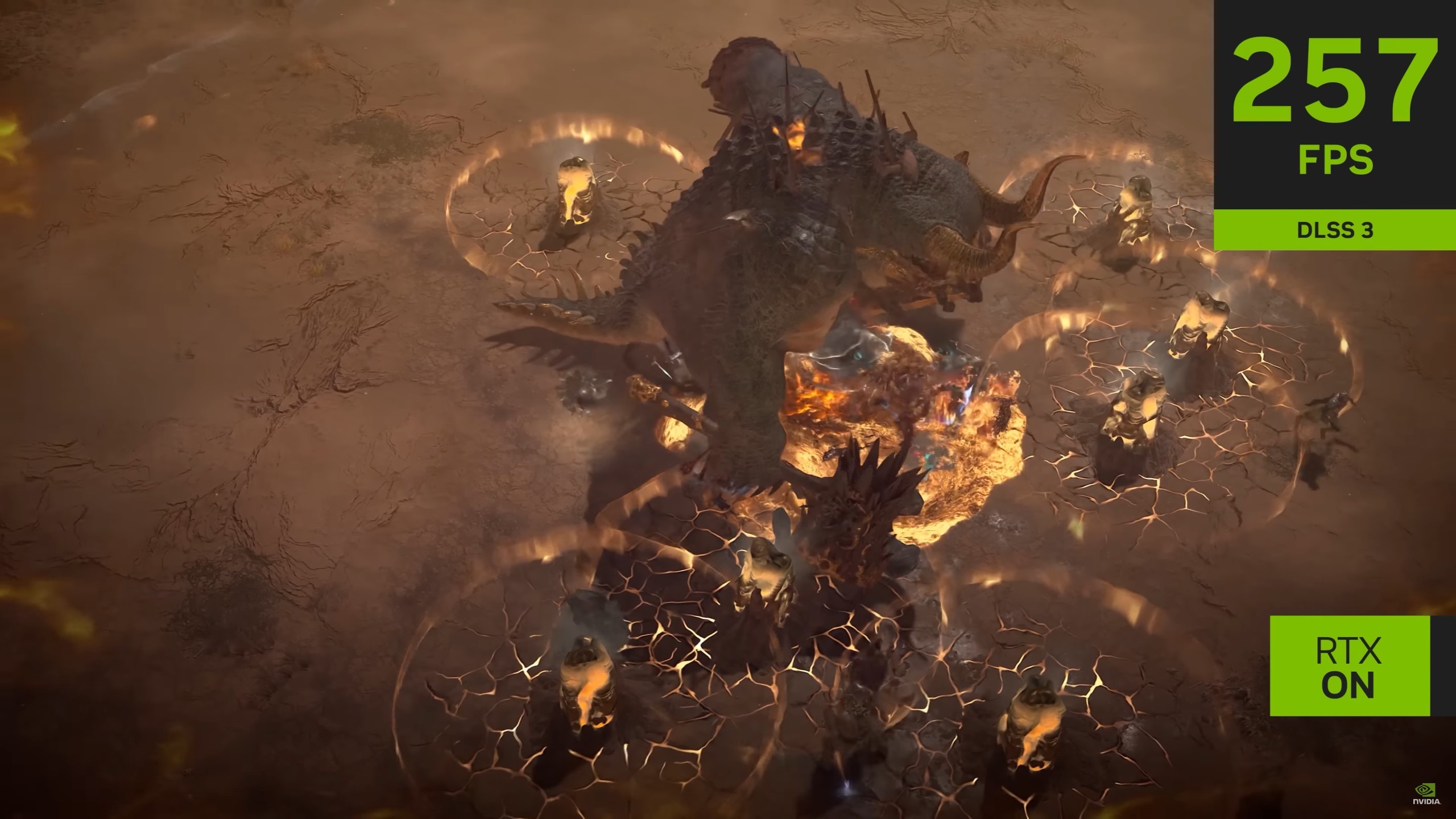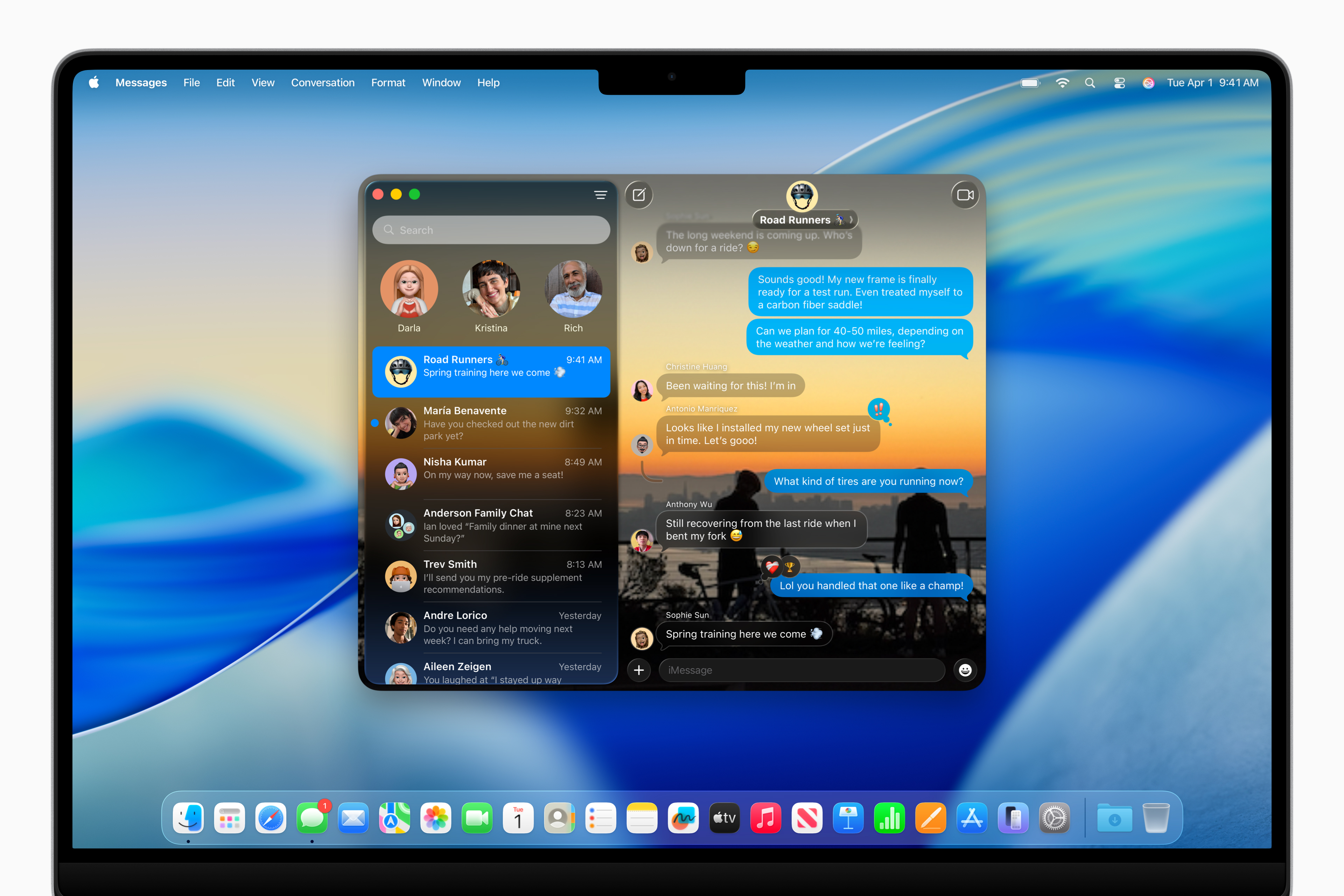
Diablo 4 is the most brutal adventure through Sanctuary yet, but NVIDIA’s latest hardware and software makes it a smooth one too.
Diablo 4 has arrived. Over a decade on from its last outing, the indomitable action-RPG where you choose from one of several legendary heroes to take on the demonic forces of hell has arrived to keep us clicking, looting, and slaying for the foreseeable future. With Lilith, the daughter of the series’ former big boss Mephisto, leading the line of heretical villains, those venturing into the world of Sanctuary once more will have their hands full trying to keep her minions at bay.
In a testament to the game’s optimisation, Diablo 4 is available across both last-gen and current-gen consoles, as well as PC of course. And while you shouldn’t doubt that it’s a hell of a ride on all platforms, there’s also no question that thanks to the power of NVIDIA’s latest line of GeForce RTX 40-series GPUs and AI-powered DLSS 3 technology, the game reigns supreme on the platform the series first spawned on: PC.
So what does NVIDIA’s GeForce RTX 40-series (encompassing the RTX 4060 Ti, 4070, 4070 Ti, 4080 & 4090 GPU) do to take the Diablo experience to new heights?
(Image credit: Nvidia)
To answer that question, we need to look at the latest generation of NVIDIA’s miracle-working framerate-boosting technology, DLSS. DLSS 3 combines DLSS Super Resolution, DLSS Frame Generation and NVIDIA Reflex to more than double frame-rates in Diablo 4 at 4K while ensuring optimum responsiveness and low system latency. This has actually been tested too, and in the chart above you can see the massive difference between having DLSS 3 in Performance Mode and having it switched off. Note also that the benchmarks are running the game unadulterated at 4K resolution with Max Settings.
With DLSS 3, DLSS Super Resolution and DLSS Frame Generation work together for your GPU to generate entirely new frames by reconstructing 7 out of every 8 pixels displayed on the screen, creating massive performance boosts at minimal power cost. All this is overseen by NVIDIA’s AI supercomputer, which trains DLSS to get better and better at reconstructing frames, which in turn improves image quality even further. So expect DLSS 3 to improve with each major update.
Diablo 4 is, as per series tradition, forgiving to players as they’re finding the ropes early on, but as you ramp up the difficulty and embrace greater challenges in pursuit of greater loot, you’ll need every advantage you can get (especially when you start facing off against other players in PvP). The searing frame rates unlocked by DLSS 3 Frame Generation helps, but another weapon in NVIDIA’s arsenal is NVIDIA Reflex, which reduces system latency by up to 67% in Diablo 4.
(Image credit: Blizzard/Nvidia)
In a game where a well-timed charge by a Barbarian can quickly close the distance on a pesky Sorceress, while an elusive Rogue depends on evading attacks before stabbing poison into their enemies for insidious damage-over-time, every frame, and every millisecond of latency, counts. NVIDIA Reflex keeps your gameplay smooth and more responsive, delivering the reaction time needed in those crucial moments.
Ready to see what DLSS 3 can do? To enable DLSS 3 in Diablo 4, go to Options > Graphics, then under the Performance section switch on DLSS Frame Generation and your desired DLSS Super Resolution quality settings. NVIDIA Reflex Low Latency is enabled automatically when you turn on DLSS Frame Generation, but you can also enable it separately in this section.
Diablo 4 is the perfect game to harness the power of NVIDIA’s latest technologies. After all, what better way to utilise them than in a war against the forces of hell itself? Head over to the official RTX 40-series page to find a graphics card that will give you an edge like no other.




